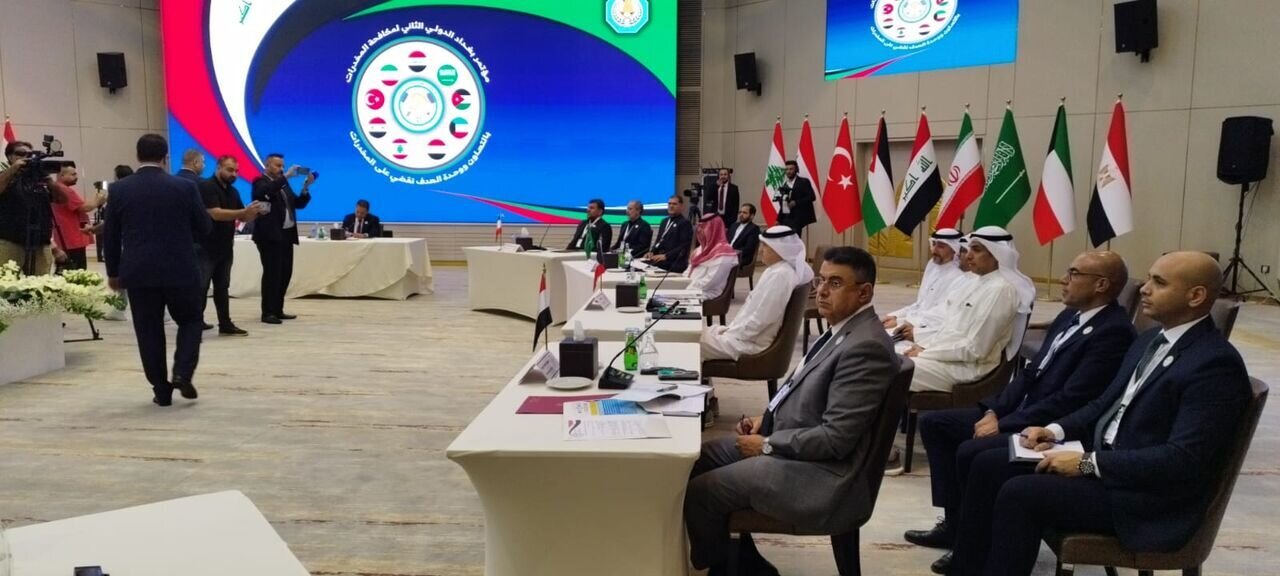Iran highlights regional co-op in fighting drug trafficking

TEHRAN – Iran anti-narcotics police chief, Iraj Kakavand, has called regional cooperation essential in tackling drug trafficking.
Highlighting Iran’s all-round efforts in the battle against narcotics and illicit trafficking, Kakavand said regional cooperation is crucial to address the problem due to vast border trafficking, IRNA reported.
He made the remarks on Saturday at preparatory meetings for the second International Conference on Drug Control, which will be held in Baghdad on Monday.
“The preparatory meetings for the international delegations participating in the second Baghdad International Conference on Drug Control have started today in the capital, Baghdad, under the slogan ‘Through Cooperation and Unity of Purpose, We Eliminate Drugs,'” the Iraq’s Ministry of Interior said in a statement.
The event was attended by Iraqi Minister of Interior, Abdul Amir Al-Shammari, and the anti-narcotics police chiefs of the neighboring countries including Iran, Saudi Arabia, Kuwait, Turkey, Jordan, Lebanon, Egypt, and Syria.
Al-Shammari underscored the importance of regional cooperation of the neighboring countries in the fight against drug trafficking. He went on to call for establishing a regional center to enhance counter-narcotics operations.
For their parts, participants discussed their perspectives on drug trafficking methods, the most important areas of industrial drug production including captagon, the passages and routes used by traffickers, and inefficient laws in their countries.
Moreover, the anti-narcotics police chiefs presented a draft of the topics that could be discussed in the second international conference on drug control.
The main session of the meetings will be held on Monday and aims to bolster the collective efforts against drug-related crimes.
Iran at forefront of war on drugs
Iran has been the only country on the front line of the war against narcotics for over 45 years despite oppressive sanctions of the U.S., the economic problems ahead, and the limited contribution of other countries.
With 4,000 martyrs in the fight against drugs, Iran is now self-sufficient in preventing addictions and has changed the balance of power in favor of the youth in the region, IRNA reported.
Their sacrifice has not only safeguarded the borders of the country but also the countries that claim democracy and human rights.
According to the United Nations Office on Drug and Crime (UNODC), about 35-40 percent of the drugs produced in Afghanistan are smuggled through Iran to enter Europe and west of Asia.
However, with the bravery and perseverance of anti-narcotics police, more than 75 percent of the drugs are discovered and destroyed.
If it weren't for necessary actions taken by Iran, this amount of illicit drugs would have caused disasters in European and American countries.
Logistical, equipment, and financial sanctions under the pretext of political sanctions, in practice, have left Iran alone in dealing with the world's largest drug trafficking axis.
According to official reports, Western countries have so far withheld even the slightest aid to Iran.
"The increase in sanctions has also cast a shadow on the fight against narcotics, but we warn them that sanctions on narcotics are the most unintelligent sanctions since it will lead to a decrease in world security,” IRNA quoted Iran's Police Chief, Brigadier General Ahmad Reza Radan as saying.
Relying on the expertise of Iranian elites and researchers, as well as using up-to-date equipment and modern inventions of knowledge-based companies, the anti-narcotics police has been able to achieve good results in drug discoveries and arresting drug dealers.
Considering that drug-related crimes are considered transnational organized crimes, no single country can effectively tackle the fight against drugs alone.
On April 17, Alireza Kazemi, an official with anti-narcotics headquarters, said, “Iran is now self-sufficient in preventing addiction, treating addicts, and combating narcotics.”
Despite unfair sanctions, knowledge-based companies have achieved significant scientific progress in dealing with the harms of addiction and drugs which has made the country independent from foreign aid.
Domestically-made products that are used to treat drug addiction can be exported to other countries, even advanced countries, he added.
The affordability and the minimal side effects of these products have made them competitive compared to foreign counterparts. In some cases, they have proved to be even much more effective.
MT/MG
Leave a Comment